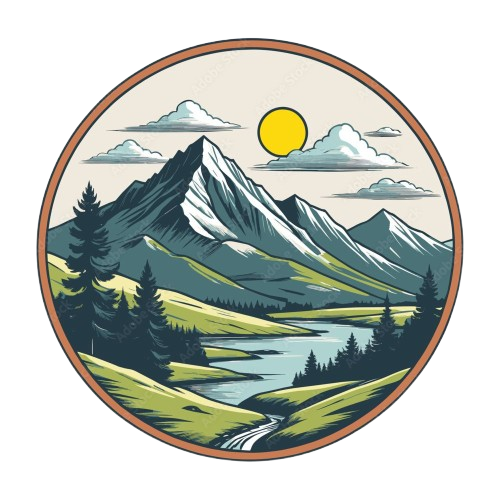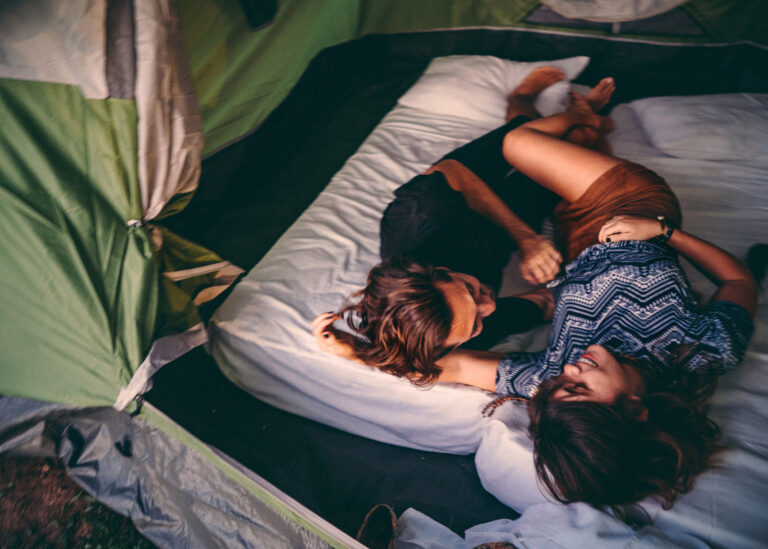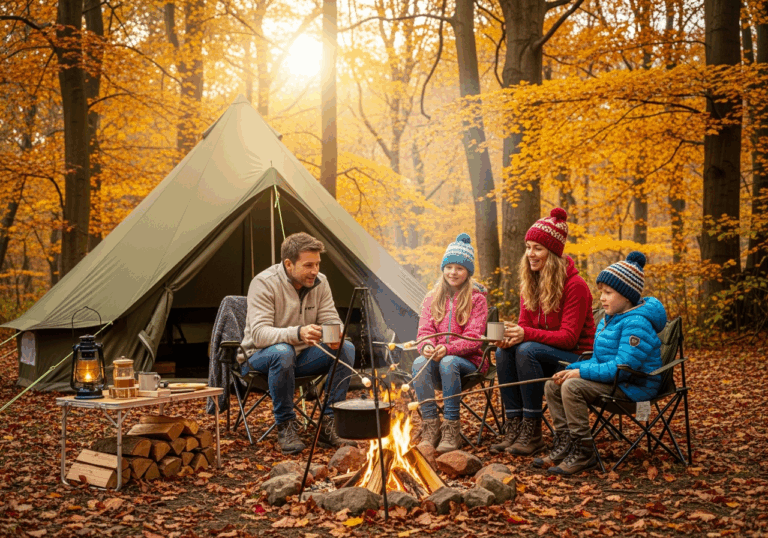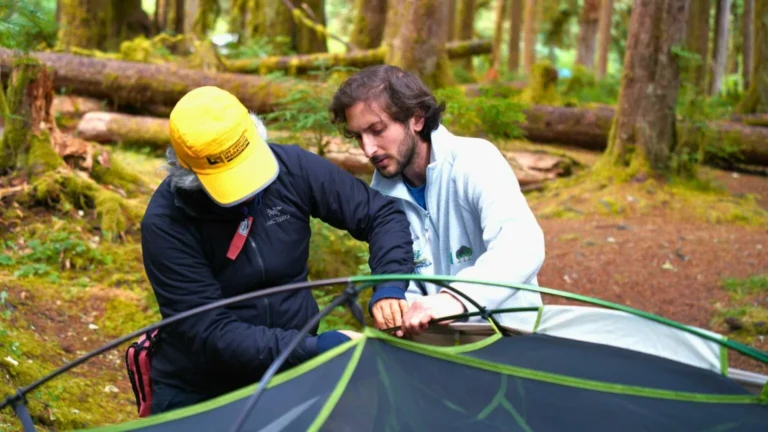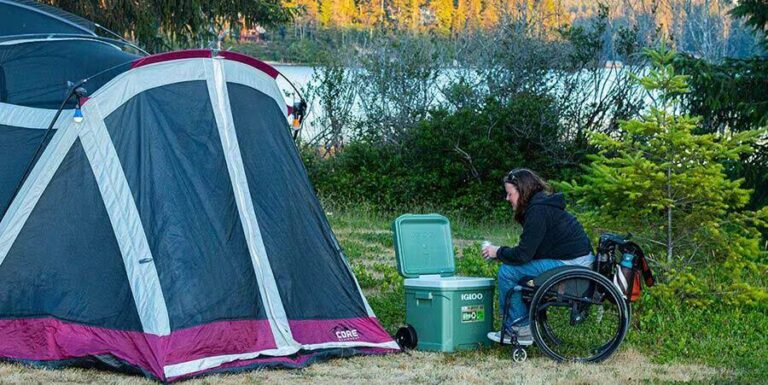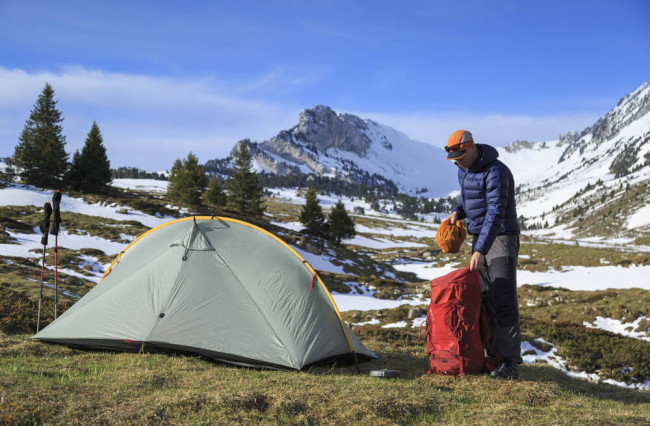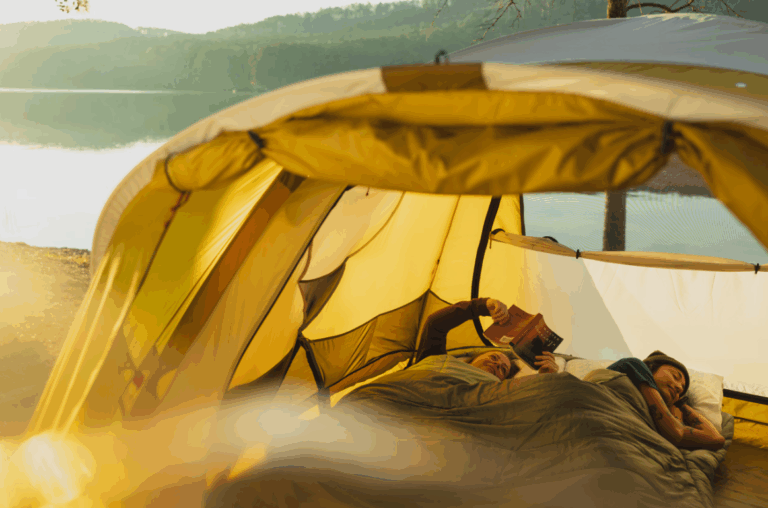An Introduction to Tent Camping for Beginners
Setting up a tent under the stars and escaping the bustle of everyday life has a profoundly fulfilling effect. Tent camping is a great way to get back in touch with nature and yourself, whether you’re drawn to it by the tranquil sounds of the outdoors, the crisp air, or the warmth of a campfire.
Don’t worry if tent camping is new to you. With the help of this guide, you will be able to begin your journey with comfort and confidence.
🏕 What is Tent Camping?
Tent camping is one of the most traditional forms of camping, where you stay in a portable shelter made of fabric, typically pitched with poles and stakes. It’s flexible, affordable, and can be done just about anywhere—from organized campgrounds to remote wilderness.
📍 Choosing a Campsite
Before you pack, you’ll need to decide where to camp. Consider the following:
- Public Campgrounds: These are great for beginners. They often have amenities like restrooms, picnic tables, and fire pits.
- State and National Parks: Beautiful, regulated, and full of trails and activities.
- Backcountry or Dispersed Camping: For the adventurous, these are free and wild—but they require experience and self-sufficiency.
Pro Tip: Reserve popular spots early, especially during weekends or holidays.
⛺ Picking the Right Tent
Your tent is your home base. Choose wisely:
- Size: Choose a tent based on how many people and how much gear you’ll have.
- Season Rating: A 3-season tent works well for spring, summer, and fall.
- Setup: Look for user-friendly designs like pop-up or color-coded pole systems.
Other Must-Haves:
- Ground tarp or footprint (protects your tent floor)
- Rainfly (keeps you dry in case of rain)
- Tent stakes and a mallet
🧳 Packing the Essentials
Here’s a checklist of camping basics:
Sleeping Gear
- Sleeping bag (rated for the expected temperatures)
- Sleeping pad or air mattress
- Pillow or stuff sack with clothes
Cooking Supplies
- Portable stove or grill
- Fuel and lighter/matches
- Cookware (pot, pan, spatula, etc.)
- Utensils, plates, and cups
- Cooler with food and drinks
- Dish soap and sponge
Clothing
- Weather-appropriate layers
- Comfortable shoes or boots
- Rain jacket
- Extra socks and underwear
Other Necessities
- Lantern or headlamp
- First aid kit
- Bug spray and sunscreen
- Trash bags
- Camping chairs
- Water bottles or hydration system
🍳 Setting Up Camp
Once you arrive at your site:
- Find a Flat, Dry Spot – Avoid low ground that may flood.
- Lay the Ground Tarp – This protects your tent and adds insulation.
- Pitch the Tent – Follow instructions carefully; practice at home first if you’re unsure.
- Organize Gear – Store food safely and keep essentials like flashlights handy.
- Build a Fire – If allowed, gather wood or buy it locally. Never leave your fire unattended.
🌲 Respecting Nature
Camping is fun, but it comes with responsibility:
- Leave No Trace: Pack out all trash and minimize impact.
- Wildlife: Never feed animals. Store food in bear-proof containers if needed.
- Quiet Hours: Respect other campers and keep noise down, especially at night.
💤 What to Expect Your First Night
It’s normal to feel a bit out of your comfort zone. Here are some first-night tips:
- Bring earplugs if forest sounds keep you up.
- Use a sleep mask if you’re light-sensitive.
- Embrace the unfamiliar—this is all part of the adventure!
💬 Final Thoughts
Tent camping is one of the most accessible and rewarding ways to explore the outdoors. With a little preparation and the right gear, you’ll find it’s easier (and more fun) than you might think. Start small, stay safe, and savor every sunrise, campfire laugh, and stargazing moment.
So grab your gear, pack your sense of adventure, and go find your perfect spot under the stars.
